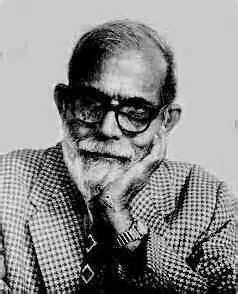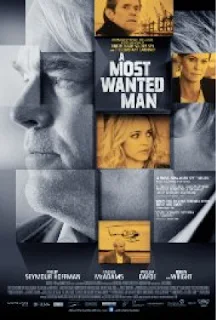If Toshiro Mifune is usually seen as rash hotblooded gangster or samurai in most movies, this Kurosawa's regular star is seen portraying a quiet tight-lipped conscientious doctor. His co-star is another regular, Takashi Shimura as his father.
The quiet duel in the title refers to the constant struggle within one's self whether to satisfy his own desires versus the moral codes set up by the society or conscience. And sometimes the price to pay can be enormous.
The story starts in a rundown military hole-ridden leaking hospital where an overworked sleep-deprived surgeon who is fighting against his biological needs of sleep and rest tries desperately to save his war-stricken patients. With limited helping hand, he somehow pulls through. In one of these stressful situations, he injures himself with an open scalpel.
Fearing for the worse, he gets himself and the patient's blood tested for syphilis.
Apparently, syphilis was reputed as a death sentence then. When young men with raging hormones were left wondering away in stressful situations, these soldiers were expected to patronise comfort women for conjugal pleasures.
The blood tests returned as favourable to a truly devasted Dr Kyoji Fujisaki (Toshiro Mifune). His fate was sealed. Treatment was protracted and not readily available. His plans to wed his sweetheart all came crashing down.
 |
Doing good does not make you
immune from misery! |
Fast forward...post-war Japan...
Dr Kyoji is still working as a dedicated doctor, now in a rural small private hospital run by his father, a gynaecologist, Dr Konosuke Fujisaki (the versatile Takashi Shimura) and himself. His sweetheart still hangs around the hospital as an assistant nurse hoping that Dr Kyoji would change his mind to marry her. The good doctor, fearing of spreading the disease to his future and child had decided to be celibate until the condition is hopefully adequately treated in a few years' time. As her biological clock was ticking away, he advised her to marry someone else without telling her the real reason. A simple answer like 'the war had changed him', he thought would suffice.
 |
| Do the stars determine your fate? |
Maybe, at this time and age, with women's empowerment and such, such a statement may not be politically correct. But then, we have to understand the social contract in that era where the society was patriarchal and women docile (or is it woman like?).
Pretty soon when the medicine used to treat syphilis repeatedly went missing, the doctor's little secret comes to the knowledge of his father and another assistant nurse. After learning the real manner how he was infected, they only give him the utmost respect. The assistant nurse has her own issue of being an unwed mother as a result of her stint as a nightclub dancer in her previous vocation. She is indebted to Dr Kyoji for giving her a new lease on life when she had attempted suicide when she was pregnant and abandoned.
As fate had it, the initial patient (Nakada) who had transmitted the disease to Dr Kyoji is met by chance in the course of his work. Unlike Kyoji who is living in constant fear and sorrow, the patient is entirely indifferent to his disease. He is enjoying his life, drinking, is married and his wife is pregnant. Dr Kyoji tries to warn Nakada, but it is met with resistance.
Eventually, Nakada and his wife land up at their hospital with a deformed stillbirth. Upon seeing this, Nakada becomes insane, unsure whether it is insanity or progression of syphilis.
Dr Kyoji's ex-sweetheart comes to the clinic for the last time before her marriage to say her farewell hoping for a last minute change of hearts on the part of the good doctor. He just sends her away without revealing the real reason.
 |
| The final farewell |
After her departure, Kyoji's nurse confronts him on his course of action. That erupts the monologue that defines the title of the movie - the quiet duel! The duel within oneself of the correct decision one has to do if life. A person who thinks and is emphatic to others would practice self-sacrifice for others. A lackadaisical would literally bury his head in the ground and hope for the trouble to just disappear. It is akin to the two ways one can encounter physical pain - create a ruckus or grimace in silence. Kyoji narrates the battles that he had to endure between fulfilling his physical needs as a man versus the moral obligations of a doctor to thwart the spread of the disease. It’s an extended, tearful scene where Mifune fully reveals the depths of his feelings and his battles. This scene is something new for the oft tough appearing star!
We all encounter constant duels within ourselves to do what is only natural for our immediate gratifications against what is better in the long term, good from the perspective of a bigger picture. We take the first step in making that painful decision to do what we do on every Sunday morning hoping that it is a right decision that we would not live t regret later. It is all just trust. That's all. Trust that we are doing the right thing.
 Marupiravi (Reincarnation, மறுபிறவி, Tamil; 1973)
Marupiravi (Reincarnation, மறுபிறவி, Tamil; 1973)

 Slowly the couple make it to Dr Kuvoor's clinic. Only then it is discovered that the lecturer grew up morbidly attached to his mother. He lost his father at an extremely young age. Even though his mother had passed away, he still chose a girl remarkably similar in features to his mother to be eternally close to his mother! Unfortunately when it came to conjugal activities, his unconscious mind just could live up to having sexual relations with that figure!
Slowly the couple make it to Dr Kuvoor's clinic. Only then it is discovered that the lecturer grew up morbidly attached to his mother. He lost his father at an extremely young age. Even though his mother had passed away, he still chose a girl remarkably similar in features to his mother to be eternally close to his mother! Unfortunately when it came to conjugal activities, his unconscious mind just could live up to having sexual relations with that figure!












